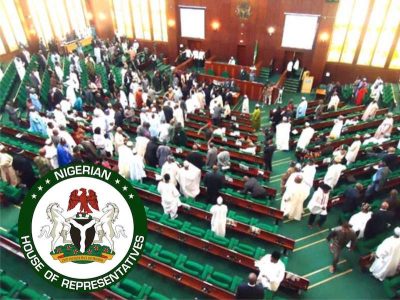House of Representatives Deliberates Proposal to Separate Attorney General and Minister of Justice Roles
The Nigerian House of Representatives is currently reviewing a legislative proposal to separate the functions of the Attorney General of the Federation (AGF) from those of the Minister of Justice. This proposal, if passed, will also mandate the division of the Attorney General’s duties from those of the Commissioner of Justice at the state level.
Lawmakers: Overview of the Bill
The proposed legislation seeks to amend Section 150 of the 1999 Constitution (as amended) to establish a clear distinction between the roles of the Attorney General and the Minister of Justice. It introduces a new subsection stating:

“There shall be an Attorney-General of the Federation who shall be the Chief Law Officer of the Federation, different from the person occupying the position of the Minister of Justice, to be appointed by the President, subject to the confirmation of the Senate.”
Similarly, at the state level, an amendment to Section 195 of the Constitution is proposed to include:
“There shall be an Attorney-General for each State who shall be the Chief Law Officer of the State, to be appointed by the Governor, subject to the confirmation of the House of Assembly.”
Sponsorship and Legislative Review
The bill is co-sponsored by two lawmakers from the Peoples Democratic Party: Mansur Soro, representing the Darazo/Ganjuwa Federal Constituency in Bauchi State, and Oluwole Oke from Osun State. The House Committee on Constitution Review, chaired by Deputy Speaker Benjamin Kalu, is currently conducting a thorough legislative review of the proposal.
Lawmakers: Objective of the Proposal
One of the key motivations behind the bill is to enhance the efficiency of Nigeria’s justice system by resolving conflicts of interest and preventing potential abuse of the legal process in public prosecutions. Mansur Soro, one of the bill’s co-sponsors, emphasized the importance of ensuring impartiality and safeguarding the public interest.
Soro explained:
“The Minister of Justice of the Federal Government and Commissioners of Justice of the states serve as partisan political advisors, providing legal guidance to cabinets and overseeing policy matters. In contrast, the Attorney-General’s role involves litigation on behalf of the federal or state governments, prosecution of public cases, and advisory on draft legislations and agreements. Combining these roles creates a significant conflict of interest.”
The proposal aims to:

- Eliminate conflicts of interest in the justice system.
- Reduce political interference in the Attorney General’s duties.
- Improve public confidence in Nigeria’s justice system.
- Promote transparency and fairness in the dispensation of criminal justice at both federal and state levels.
Addressing Cost Implications
Critics have expressed concerns about the financial implications of separating these roles, given the potential increase in the cost of governance. However, Soro argued that the benefits of the proposed amendments far outweigh the costs, stating:
“While I have always advocated for affordable governance, the gains of this proposal—such as improved justice delivery and public trust in the system—surpass concerns about increased expenditure.”
Public and Legislative Impact
The proposal has sparked significant debate within the legal community and among lawmakers. If approved, it could set a precedent for a more impartial justice system, reinforcing the separation of powers and ensuring that legal processes are insulated from political influences.
The bill’s progress through legislative scrutiny marks a critical step in Nigeria’s ongoing efforts to reform its justice system. Proponents argue that a clear delineation of roles will create a more effective framework for law enforcement, litigation, and public prosecutions.
Next Steps
As the House Committee on Constitution Review continues its deliberations, stakeholders and legal experts are closely monitoring the potential outcomes of this landmark proposal. The decision of the House of Representatives could redefine the structure and function of Nigeria’s justice system, setting a standard for accountability and efficiency in public administration.









